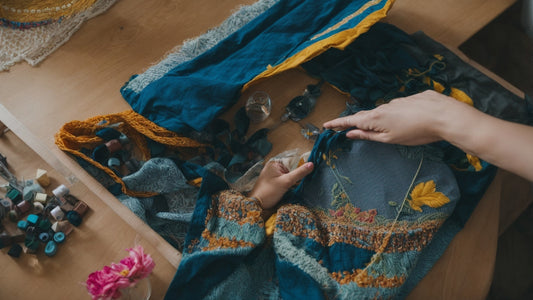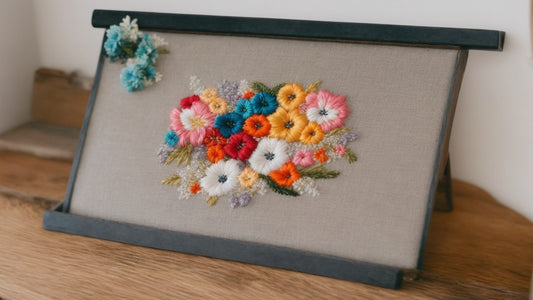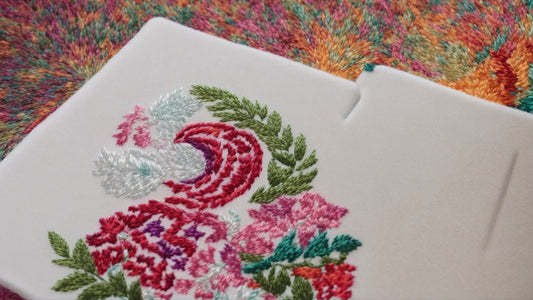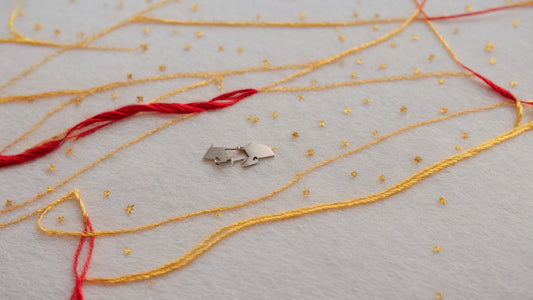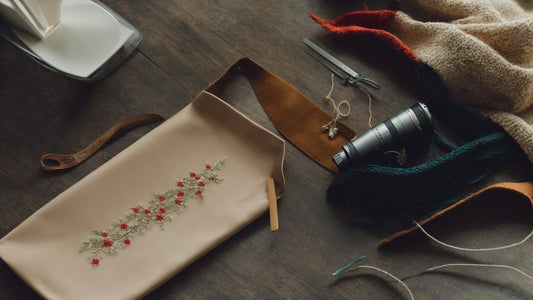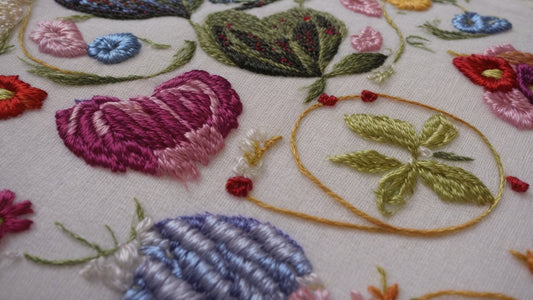
Day 2: Essential Embroidery Tools and Materials
Day 2: Essential Embroidery Tools and Materials
Embroidery is a beautiful art form that allows you to create stunning designs using needle and thread. Whether you're a beginner or an experienced embroiderer, having the right tools and materials is essential to create your masterpiece. In this article, we will explore the essential embroidery tools and materials you need for your embroidery journey.
1. Embroidery Needles
The first tool you'll need is a set of embroidery needles. These needles are specially designed with a sharp point and a large eye to accommodate embroidery threads. They come in different sizes, so choose one that suits the thickness of your thread and the fabric you'll be working on.
2. Embroidery Hoop
An embroidery hoop is used to hold the fabric taut while you stitch. It consists of an inner and outer ring that can be tightened together. Hoops are available in various sizes and materials like wood and plastic. Choose a hoop that fits comfortably in your hand and is suitable for the size of your project.
3. Embroidery Threads
Embroidery threads come in a wide range of colors and materials. The most commonly used threads are cotton and silk. They are available as stranded floss or in skeins. Choose threads that complement your design and ensure they are colorfast and durable.
4. Embroidery Scissors
A pair of sharp embroidery scissors is essential for precise cutting of threads. Look for scissors with a fine point that can easily maneuver around your stitches. It's important to keep your embroidery scissors separate from other household scissors to maintain their sharpness.
5. Fabric
The choice of fabric is crucial for embroidery. Opt for a fabric that has a tight weave and is easy to work with. Common choices include cotton, linen, and evenweave fabric. Remember to wash and iron your fabric before starting your embroidery to remove any wrinkles or dirt.
6. Transfer Tools
If you're working with a design that needs to be transferred onto the fabric, you'll need transfer tools. Options include transfer pens, carbon paper, and embroidery transfer paper. Choose the method that works best for your project and follow the instructions carefully.
7. Embroidery Patterns
Embroidery patterns provide you with inspiration and guidance for your designs. You can find patterns in books, magazines, or online. Choose patterns that match your skill level and personal style. You can also create your own patterns or modify existing ones to make them unique.
These are the essential tools and materials you need to embark on your embroidery journey. Remember to invest in good quality tools and materials as they will make your stitching experience more enjoyable and your finished embroidery pieces more beautiful. Happy embroidering!
